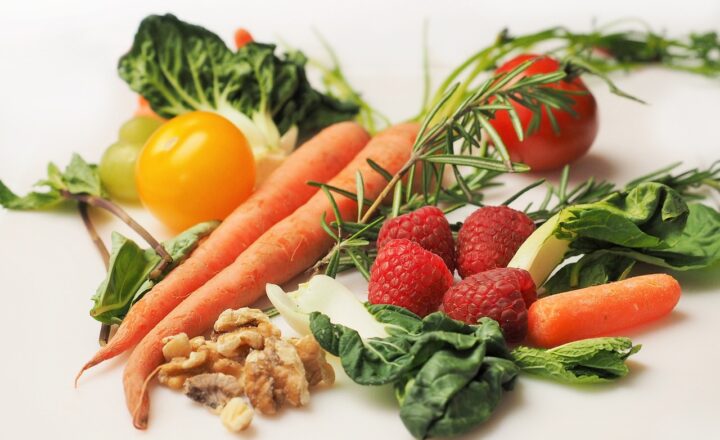
In our fast-paced lifestyle, we often overlook the significance of what we eat and how it impacts our health. The kitchen, often the heart of the home, holds the key to a healthier future. Simple ingredients, easily accessible, can enhance our health in profound ways. You may be surprised to learn that some everyday items can provide powerful health benefits, nourish our bodies, and improve our overall quality of life.
1. The Power of Herbs and Spices
When you think of enhancing flavors in your food, don’t underestimate the power of herbs and spices. These small additions can not only transform your meals but also boost your health effectively.
– Turmeric: Known for its vibrant color and earthy flavor, turmeric contains curcumin, a compound with anti-inflammatory and antioxidant properties. Incorporating turmeric into your dishes or sipping on turmeric tea can potentially aid in preventing chronic diseases, boosting your immune system, and improving cognitive function.
– Ginger: This aromatic root is renowned for its ability to soothe digestive issues and reduce nausea. Additionally, ginger has anti-inflammatory properties and can help regulate blood sugar levels.
– Garlic: This kitchen staple isn’t just for flavor. Garlic contains allicin, known for its potential to fight infections and improve heart health. Regular consumption of garlic can lower cholesterol levels and blood pressure, making it a must in your cooking.
Embrace these herbs and spices not only to make your meals tastier but also to reap their health benefits.
2. Fruits and Vegetables: Nature’s Multivitamins
A foundational element of a healthy diet, fruits and vegetables are packed with essential nutrients and antioxidants. Eating a rainbow of colors not only provides a diverse range of nutrients but also keeps meals exciting!
– Berries: Blueberries, strawberries, and blackberries are loaded with antioxidants that can protect the body from oxidative stress and reduce inflammation. They are also known to enhance brain health and support heart health.
– Leafy Greens: Spinach, kale, and swiss chard are nutrient-dense and low in calories. These greens are rich in vitamins A, C, and K, as well as calcium and iron. They support eye health, improve digestion, and strengthen bones.
– Citrus Fruits: Oranges, lemons, and grapefruits are high in vitamin C, which can boost the immune system and promote healthy skin. Their high fiber content also aids digestion.
Including a variety of fruits and vegetables in your diet can contribute significantly to overall wellness, preventing chronic diseases and enhancing vitality.
3. Whole Grains: The Unsung Heroes of Nutrition
Whole grains often take a backseat in many diets, yet they provide an array of health benefits that shouldn’t be ignored.
– Quinoa: An excellent protein source, quinoa is also gluten-free. Packed with fiber and essential amino acids, it fosters digestive health and helps regulate blood sugar levels.
– Brown Rice: Unlike white rice, brown rice retains its bran and germ, making it more nutritious. It’s rich in magnesium, which can help lower blood pressure and reduce the risk of heart disease.
– Oats: A fantastic breakfast option, oats can reduce cholesterol and aid in weight management. Their high fiber content keeps you full longer, making it easier to control your appetite.
Incorporating whole grains into your meals can improve heart health, support weight loss, and provide sustained energy throughout the day.
4. Healthy Fats: Not All Fats Are Created Equal
In the past, dietary fats were often demonized, yet healthy fats are essential for good health, particularly for brain function and cell growth.
– Avocado: Creamy and delicious, avocados are packed with monounsaturated fats, which can lower bad cholesterol levels. They are also rich in fiber, promoting digestive health.
– Nuts and Seeds: Almonds, walnuts, chia seeds, and flaxseeds are excellent sources of omega-3 fatty acids, protein, and fiber. They can support heart health and help manage weight.
– Olive Oil: A staple in Mediterranean diets, extra-virgin olive oil is known for its heart-protective properties. Its antioxidants can enhance cardiovascular health while adding flavor to your dishes.
Incorporating these healthy fats can help improve heart health, enhance nutrient absorption, and promote healthy skin.
5. Fermented Foods: Boost Your Gut Health
Growing interest in gut health emphasizes the importance of fermented foods in our diet. These foods are rich in probiotics that promote a healthy microbiome.
– Yogurt: Packed with beneficial probiotics, yogurt can aid digestion and support immune function. Opt for plain, unsweetened versions to avoid excess sugars.
– Sauerkraut: This tangy fermented cabbage is rich in probiotics and vitamins. It can help improve digestion and boost immunity.
– Kefir: Similar to yogurt, kefir contains a larger variety of probiotics. It’s versatile and can be added to smoothies or consumed on its own.
Incorporating fermented foods into your meals can enhance your digestive health, support immune function, and improve overall wellness.
6. Hydration: The Often Overlooked Element
While not a food, hydration is a crucial aspect of maintaining health. Our bodies require adequate water intake to function correctly.
– The Importance of Water: Staying hydrated supports digestion, nutrient absorption, and temperature regulation. Inadequate hydration can lead to fatigue, headaches, and decreased cognitive function.
– Infused Water: Enhance your hydration by adding fruits, herbs, or vegetables for flavor. Cucumber, lemon, citrus, and mint make refreshing combinations that encourage drinking more water throughout the day.
Incorporating hydration strategies into your daily routine can significantly affect your overall health, revitalizing your body and mind.
Conclusion
The journey to better health starts in your kitchen. By fostering an environment rich in nutrient-dense foods and healthy ingredients, you can transform your well-being. Embrace the power of herbs and spices, nourish your body with fruits and vegetables, invest in whole grains, and include healthy fats in your meals. Don’t forget the importance of fermented foods and adequate hydration.
Remember, small changes in your kitchen can lead to substantial improvements in your health. Make better choices today and unlock the secrets to a healthier, happier lifestyle right in your kitchen!







